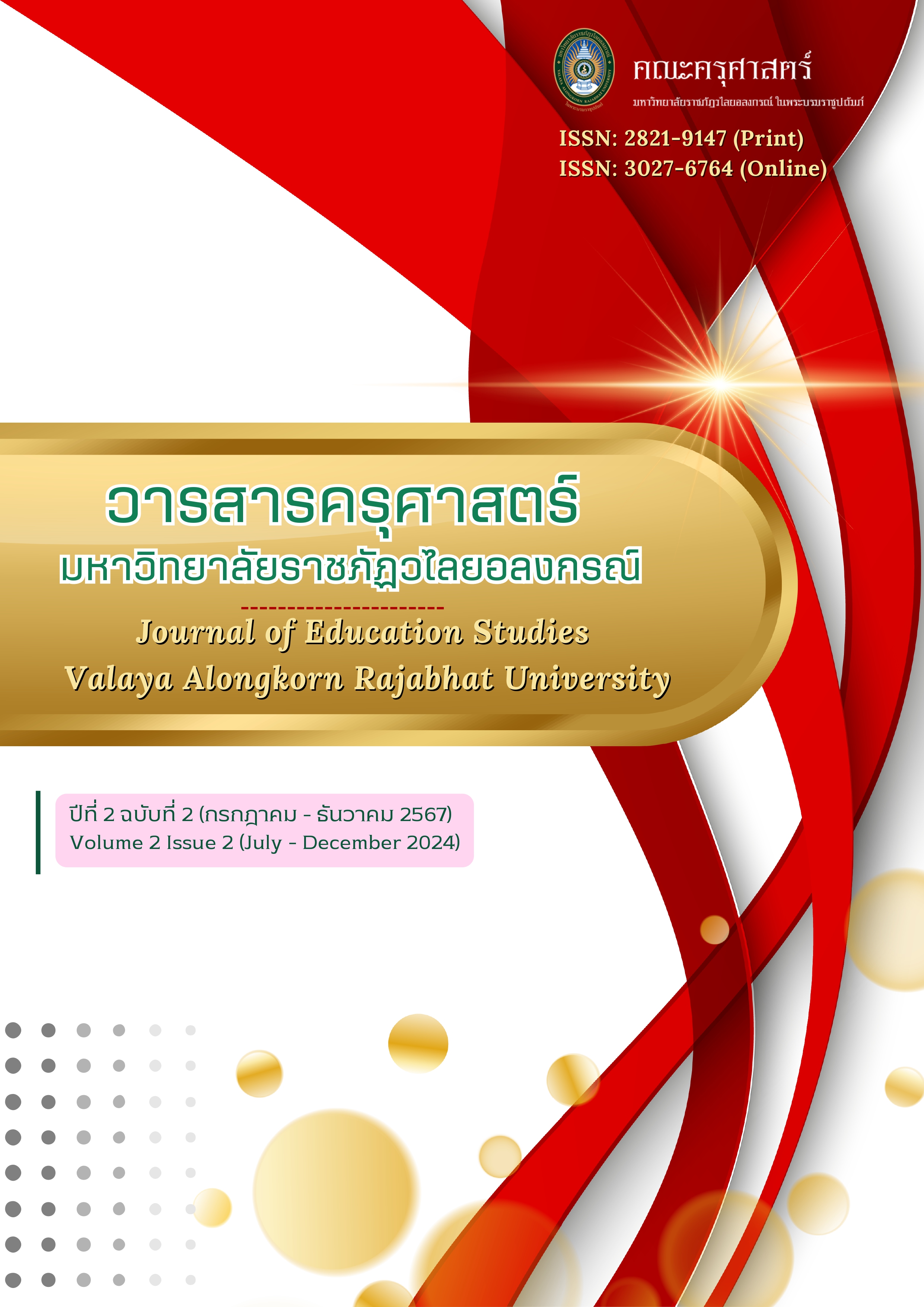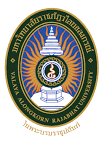The Development of Learning Achievement in Mathematics on The Subject of Quadratic Equations with One Variable of Grade 9 Students by Organizing Cooperative Learning by Using the STAD Technique Combined with the Problem-Solving Process Based on The Concept of Polya
Keywords:
Learning Achievement, Cooperative Learning, STAD Technique, Problem-Solving Process According to Polya's ConceptAbstract
The purpuses of this research were to (1) study mathematics learning achievement on quadratic equations with one variable of the students who learned with STAD technique along with problem-solving processes based on Polya's concept comparing against the criterion of 80 percent (2) compare the achievement before and after studying the subject of quadratic equations in one variable through cooperative learning using the STAD technique along with problem-solving processes based on Polya's concept. The sample group used in the research was 28 Mathayom 3 students, obtained from cluster random sampling. The tools used in the research were 1) a mathematics lesson plan 2) a mathematics achievement test on the subject of quadratic equations in one variable. The statistics for the data analysis included mean, standard deviation, and percentage.
The research were as follows:
- Academic achievement on quadratic equations in one variable Through cooperative learning using the STAD technique along with problem-solving processes based on Polya's concept. The score was 88.75 percent, which was higher than the specified criteria of 80 percent with statistical significance at the .05 level.
- Results of comparing achievement before and after studying cooperative learning using the STAD technique together with the problem solving process according to Polya's concept of quadratic equations in one variable. After studying was significantly higher than before studying at the .05 level.
References
กาลทิวา สูญราช และวรรณพล พิมพะสาลี. (2561). การจัดการเรียนการสอนโดยใช้กระบวนการแก้ปัญหาตามแนวคิดของโพลยาเรื่อง การแยกตัวประกอบของพหุนาม ของนักเรียนชั้นมัธยมศึกษาปีที่ 3. วารสารวิทยาศาสตร์และวิทยาศาสตร์ศึกษา, 1(2), 206-215.
ชานนท์ ปิติสวโรจน์. (2560). การจัดการเรียนรู้เพื่อพัฒนาผลสัมฤทธิ์ทางการเรียนคณิตศาสตร์เรื่อง โจทย์ปัญหาการบวกและการลบโดยใช้กระบวนการแก้โจทย์ปัญหาของโพลยาสำหรับนักเรียนชั้นประถมศึกษาปีที่ 2. วารสารบัณฑิตวิจัย, 8(1), 57-69.
ณัฐพร โพธิ์เอี่ยม. (2550). การพัฒนาผลการเรียนรู้ เรื่อง โจทย์ปัญหาของนักเรียนชั้นประถมศึกษาปีที่ 4 ที่จัดการเรียนรู้แบบกลุ่มช่วยเหลือเป็นรายบุคคล (TAI) ร่วมกับกระบวนการแก้ปัญหาของโพลยา [วิทยานิพนธ์ปริญญาศึกษาศาสตรมหาบัณฑิต ไม่ได้ตีพิมพ์]. มหาวิทยาลัยศิลปากร.
ทิศนา แขมมณี. (2545). รูปแบบการเรียนการสอน: ทางเลือกที่หลากหลาย. กรุงเทพฯ: สํานักพิมพ์แห่งจุฬาลงกรณ์มหาวิทยาลัย.
พัชรินทร์ ทิตะยา. (2562). การพัฒนาความสามารถการแก้โจทย์ปัญหาทางคณิตศาสตร์โดยใช้กระบวนการแก้ปัญหาของโพลยาร่วมกับการเรียนรู้แบบร่วมมือ TAI ของนักเรียนประถมศึกษาปีที่ 6. กรุงเทพฯ: มหาวิทยาลัยธุรกิจบัณฑิตย์.
วรัญญา นิลรัตน์. (2561). ผลการจัดการเรียนรู้แบบร่วมมือโดยใช้เทคนิค STAD ร่วมกับกระบวนการแก้ปัญหาตามแนวคิดของโพลยา (Polya) เรื่อง อัตราส่วนตรีโกณมิติที่มีต่อผลสัมฤทธิ์ทางการเรียนของนักเรียนชั้นมัธยมศึกษาปีที่ 5 กรุงเทพฯ: โรงเรียนสวนกุหลาบวิทยาลัยธนบุรี.
สถาบันส่งเสริมการสอนวิทยาศาสตร์และเทคโนโลยี (สสวท.). (2560). การจัดสาระการเรียนรู้กลุ่มวิทยาศาสตร์หลักสูตรการศึกษาขั้นพื้นฐาน. กรุงเทพฯ: สถาบันส่งเสริมการสอนวิทยาศาสตร์และเทคโนโลยี.
อรษา เกมกาแมน. (2559). ผลการเรียนรู้วิชาคณิตศาสตร์ เรื่อง โจทย์ปัญหาเศษส่วนของนักเรียนชั้นประถมศึกษาปีที่ 6 โดยการจัดการเรียนรู้แบบร่วมมือกันแบบแบ่งกลุ่มผลสัมฤทธิ์ (STAD) ผสานกลวิธี STAR. [วิทยานิพนธ์ปริญญาศึกษาศาสตรมหาบัณฑิต ไม่ได้ตีพิมพ์]. มหาวิทยาลัยเทคโนโลยีราชมงคลธัญบุรี.












